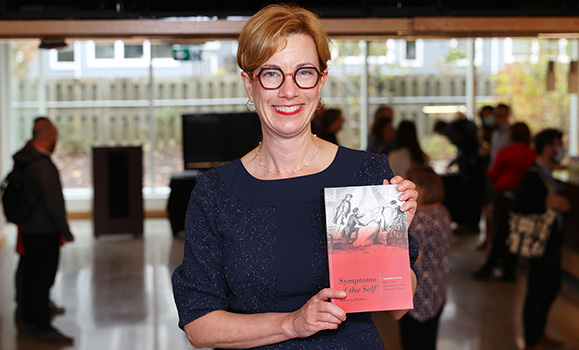Members of the Faculty of Arts and Social Sciences (FASS) community gathered last week for their first in-person annual celebration of research, publications, and creative activities since 2019.
Dr. Karen Foster, associate dean of research in FASS and an associate professor of sociology, noted that the 2023 presentation highlighted just some of the work colleagues have done over the past year and a bit, adding how proud she felt of the diversity represented in this work, but also the common threads.
âSo many of us in our work are asking the biggest questions there are,â said Dr. Foster in remarks at the event âHow do we live together? How do we see each other? How do we talk to one another?âÌý
Dr. Foster added that seeing the presentation of these works through a slideshow is one thing but seeing it in the context of everything she knows from her perspective in the associate dean role is âmore special.â
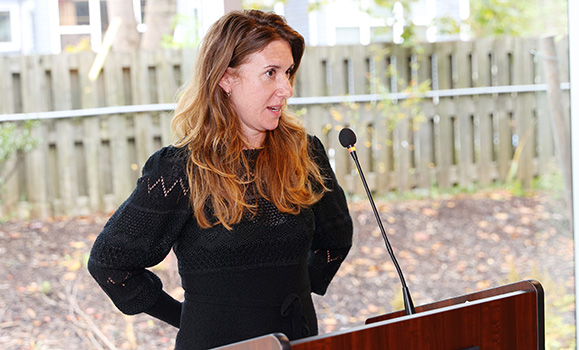
Dr. Karen Foster speaks at the event.
âI have seen how we support and protect our diverse approaches to the âscholarly activityâ part of our jobs,â she said. âSome of our faculty are going to win giant grants and form big collaborative teams and train scores of graduate students, and others are going to work more quietly on important but unfashionable things with few resources beyond their own brains, laptops, and the literatures they engage with. And I think itâs so important that we continue to value and support both of those approaches and everything in between.â
Below, find a few examples of the broad range of scholarly and creative output by faculty members from the humanities, social sciences, languages, and creative arts over the past year.
A timely award winner
Ìý
Roberta Barker, a professor of theatre in the Fountain School of Performing Arts, saw her book Symptoms of the Self: Tuberculosis and the Making of the Modern Stage published last winter. Dr. Barkerâs text, which offers the first full study of the stage consumptive, won the 2023 Ann Saddlemyer Award which goes to the best book published in English or French in Canada in a given year that constitutes a substantial contribution to the field of drama, theatre, and performance studies.
Dr. Barker said this book was the fruit of more than a decade of research in theatre archives in Paris, London, Boston, and New York City, as well as in medical libraries and countless digital databases, adding that throughout the 19th and into the 20th centuries, the tubercular patient (or âconsumptiveâ) was a very popular character on transatlantic stages.Ìý
âMy book aims to show how societies used this figure to develop new styles of acting and to express ideas about gender, race, class, morality, and beauty, as well as about health and illness,â said Dr. Barker. âNear the end of the project, the question of how illness can shape a cultureâs ways of thinking about itself became all too close to home when the COVID-19 pandemic hit. I never thought Iâd write the last words of my book about a hugely impactful disease while in lockdown due to another one.â
In the shadows of a global threat
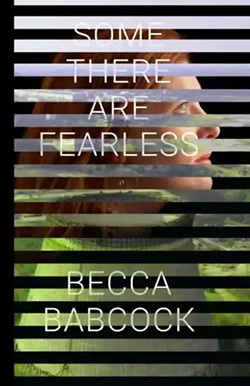 Rebecca Babcockâs second novel,ÌýSome There are Fearless, provides a compelling contemporary novel set in Canada and Ukraine. The book, released in the spring, tells the story of a nuclear engineer obsessed with preventing disaster. Growing up on a northern Alberta military base during the Cold War, the storyâs protagonist was a child when she heard the news of the Chernobyl nuclear accident and the disappearance of Ukrainian relatives.
Rebecca Babcockâs second novel,ÌýSome There are Fearless, provides a compelling contemporary novel set in Canada and Ukraine. The book, released in the spring, tells the story of a nuclear engineer obsessed with preventing disaster. Growing up on a northern Alberta military base during the Cold War, the storyâs protagonist was a child when she heard the news of the Chernobyl nuclear accident and the disappearance of Ukrainian relatives.
âI grew up In Cold Lake, Alberta, in the town surrounding the CFB air force base,â explained Dr. Babcock, an instructor in Dalâs creative writing program and assistant dean of student matters for FASS. âI drew on my experiences of living in a military community at the end of the Cold War to tell a story about a woman who is part of the generation that was shaped by the threat of nuclear disaster.âÌý
Ìý
New perspectives on Apartheid's end
Ìý
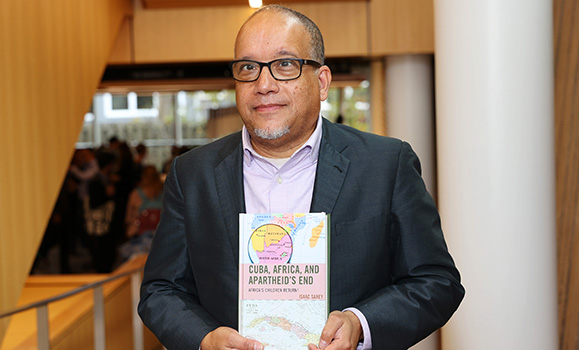
Dr. Isaac Saney published the book, Cuba, Africa, and Apartheidâs End: Africaâs Children Return!Ìýlast winter. Dr. Saney, an associate professor in FASS and coordinator of the Black and African Diaspora Studies program, explained that the book provides a substantial contribution to our comprehension of the events that unfolded in southern Africa throughout the 1980s and 1990s. It did so by documenting a crucial facet often overlooked in the Western world: the extensive involvement of Cuba in Africa's anti-colonial and national liberation movements.Ìý
âIn essence, the book serves to reestablish the agency of the global South,â said Dr. Saney.Ìý
He added, âWhat made the process [of producing this text] particularly gratifying and enriching was the extensive archival research that spanned various continents (Africa, the Americas, and Europe) and the opportunity to work in three different languages.â
Inspiring reading groups internationally
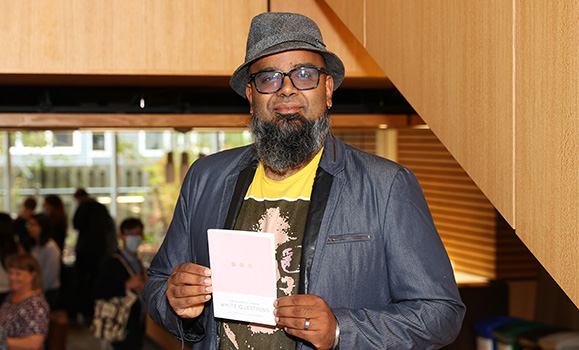 The success of Dr. Ajay Parasramâs monthly podcast âSafe Space for White Questions,â which he launched with Mount Saint Vincent Universityâs Dr. Alex Khasnabish in 2020,Ìý led the duo to publish a book inspired by the same topic. Frequently Asked White Questions, released last fall, offers relatable advice and a practical entry point into conversations about race, with humour and compassion.
The success of Dr. Ajay Parasramâs monthly podcast âSafe Space for White Questions,â which he launched with Mount Saint Vincent Universityâs Dr. Alex Khasnabish in 2020,Ìý led the duo to publish a book inspired by the same topic. Frequently Asked White Questions, released last fall, offers relatable advice and a practical entry point into conversations about race, with humour and compassion.
âWe wrote FAWQ because a world free from racism needs to joyfully include white people who often need a little extra help understanding how structural white supremacy blocks our path toward collective liberation,â said Dr. Parasram, an associate professor of international development studies and history at Dal.
Dr. Parasram said theyâve been really surprised at the different audiences the book has reached, including reading groups that have formed at the Department of National Defence, universities across Canada and the UK, CBC in the west and east coasts in particular, and religious communities.Ìý
âMuch to our surprise, a lot of racialized folks have been really into it as well, because I think they see their struggle to educate others come through in the book.âÌý
Putting womenâs perspectives first
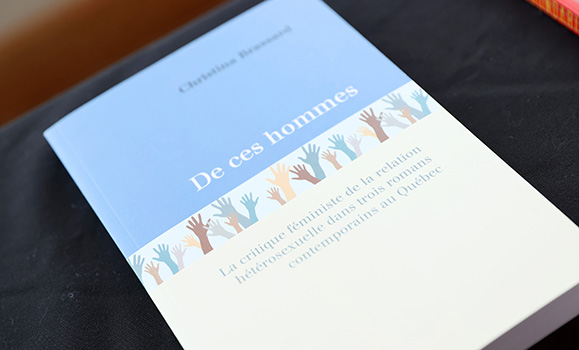
Dr. Christina Brassard, an assistant professor in the French department, also published an award-winning academic text this year. Her book,ÌýDe ces hommes. La critique féministe de la relation hétérosexuelle dans trois romans contemporains au Québec, won the 2023 Prix Découverte â a literary prize awarded at the Saguenay Lac-Saint-Jean Salon du Livre. The book explores heterosexual representations of love in a context of diversity, equality, and inclusion in Quebec novels of the 21st century from women's perspectives.Ìý
âWinning this prize has motivated me to pursue writing fiction books, as the members of the committee told me they would love to see how my writing would look like as a writer of fiction instead of essays,â said Dr. Brassard. âI am currently writing a horror book with a story that takes place in Nova Scotia."


